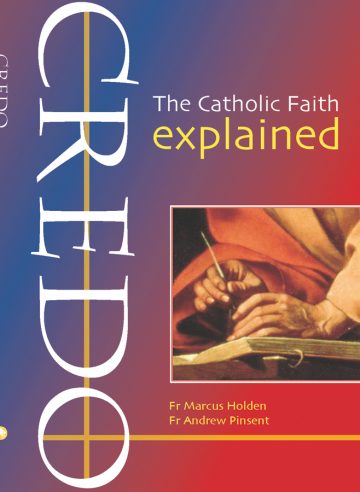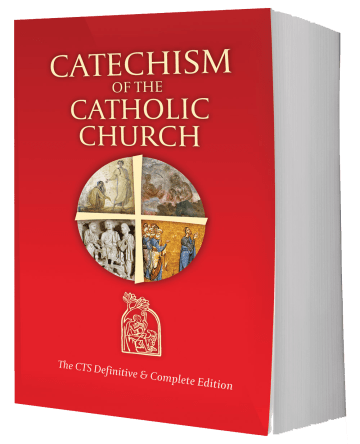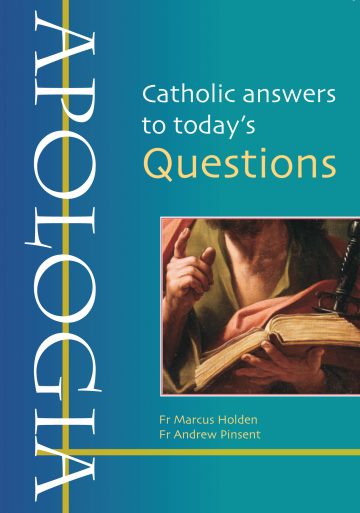Let me explain the “switch your brain off” theory of religion. In this theory, religion is about blind faith. You just jump in. You switch your brain off (hence the title); you mindlessly accept the teaching of your religious leaders; and you practice this faith without any understanding or rational discussion.
This is not Christianity, and I don’t think it’s many other religions either. Christians are required to use their intelligence; to examine things critically; and above all to seek the truth. I think there are good reasons for believing in God, and for believing in Jesus Christ.
So you might say, “OK, then prove it to me!” And I’d reply: “Maybe you are looking for the wrong thing. I can certainly give you lots of evidence. But maybe not a cast iron proof.” And this is really the heart of the matter. Christianity deals with rational evidence, but not with scientific proof. They are both important. But they are not the same.
In science and mathematics, you need proof. I can prove to you, if I have the skills, that 2 + 2 = 4, or that light travels faster than sound, or that gravity is working here. But in many, many other areas of life, you are looking for evidence, not proof. And if you find enough good, solid, trustworthy evidence, then it leads you to the truth. Science is science. It’s amazing! But it only leads you to one kind of truth.
Think of ordinary life. How do you know that someone loves you? You can try doing a data analysis of the number of times they have smiled at you this week or the number of minutes between each hug. But it’s hard to prove, scientifically. Hopefully, however, you can find lots of evidence that they do love you. How do you know you can trust someone? It’s often a mixture of instinct and experience. You have good reasons, even without actual proof.
I’ve been watching the TV series The Good Wife. It’s a classic legal drama with a different courtroom scene in every episode, and a whole lot of politics and family stuff going on in the background. In every episode, the judge looks at the jury and asks them to give a verdict – to make a judgement that is “beyond reasonable doubt.”
It’s a really interesting phrase: beyond reasonable doubt. It means that even though you can’t actually prove it, it would be unreasonable to doubt it.
I remember going to an exhibition at Tate Modern by the artist Matisse. There were these huge images created from paper cut-outs, some of them taking up the whole of the gallery wall. I was peering at the individual shapes and colours. They were attractive in themselves, but they made no sense. It was only when I stepped right back, to the opposite wall, that I could see the whole; how everything fitted together; the balance and the harmony and the beauty.
Very often, when people start to believe, it’s not one thing alone, it’s many different things coming together. It’s thinking about the existence of God; reading something in the Bible; hearing the story of Jesus. It’s the goodness of a Christian friend; an experience of suffering; a glimpse of beauty. It’s a deep sense of gratitude; a coincidence that seemed to have some kind of meaning; a prayer that had some kind of answer.
These may be small things, but when you put them together they point to something much bigger, to the goodness of God, and an intuition that he has spoken to us in Jesus Christ. Yes, you need reason and logic. But it will only get you so far. You also need insight, intuition, understanding, wisdom, vision. You need to step back and see the whole.
When I put all the evidence together, I see something that makes me want to believe. There is no mathematical proof, but there is enough good evidence here for me to take a step forward. In this sense, I think there are many good reasons for us to believe.
Questions for reflection
What were the main religious beliefs or human values or moral principles that you grew up with?
How have your beliefs or values changed over the years?
What are the most important values you hold today and why?
 This blog is extracted from SYCAMORE: The Catholic Faith Explained.In SYCAMORE you will find answers to the most common questions about life and faith, whether you want to deepen the faith you already have or are exploring the faith for the first time.
This blog is extracted from SYCAMORE: The Catholic Faith Explained.In SYCAMORE you will find answers to the most common questions about life and faith, whether you want to deepen the faith you already have or are exploring the faith for the first time.
To learn more about the Catholic faith in an approachable way, or for help passing it on to others, get your copy of SYCAMORE today.





